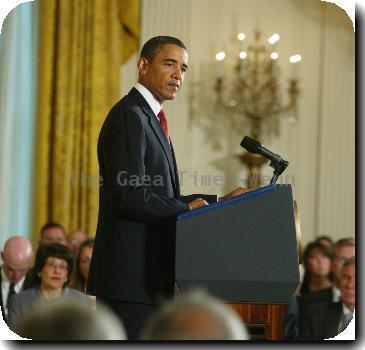Captured Taliban leader could play role in shaping future of stalemated war in Afghanistan
By Lolita C. Baldor, APWednesday, February 17, 2010
Captured Taliban leader could shape stalemated war
WASHINGTON — The capture and interrogation of Taliban commander Mullah Abdul Ghani Baradar could help unravel the Afghan insurgency, but it’s less likely to lead U.S. forces to Osama bin Laden.
In nearly two weeks of interrogation in Pakistan, the Taliban operations chief has provided limited information, officials said. In his discussions with his Pakistani captors, Baradar has focused on his own fate and not provided full details about the location of fellow insurgents or weapons caches.
That means the immediate benefit from Baradar’s arrest has been his sudden absence as the Taliban’s daily battlefield commander. But if he decided to cooperate, the growing hope among both U.S. and Pakistani officials is that he would play the broker in negotiating a cease-fire between the Afghan Taliban and the U.S. and NATO-led forces fighting in Afghanistan.
U.S. officials, speaking on condition of anonymity to discuss classified intelligence issues, said Baradar does have a wealth of in-depth information on other Taliban leaders and could point to moderates who are approachable and warn away from hard-liners unwilling to get involved in the peace process.
It is not clear, though, whether the United States shares the broader belief apparently held by Pakistan’s government that Baradar could be a direct player in eventual peace negotiations across the border in Afghanistan.
But some officials who have dealt with the Taliban in the past see positive signs in Baradar’s push last year inside the Taliban’s command to have the faction’s leaders focus on governing as well as controlling territories.
“It seems he was trying to shift the organization from purely military to partly also political,” said Richard Barrett, the head of a U.N. group that monitors the threat posed by al-Qaida and the Taliban. “That seems to be a prelude to Taliban sitting down at table or at least talking.”
Baradar is known as a savvy and powerful leader who “could issue an order which would be not only transmitted within a relatively short period, like 24 hours or so, down to the district level, but also would be obeyed,” Barrett said. “That’s quite significant.”
The operations chief was centrally involved in the distribution of a manual last July that cautioned Taliban fighters against brutalizing civilians and pressing them to try and avoid killing innocents in suicide bombings.
A similar push against civilian casualties has been a top priority of the commander of U.S. and NATO forces in Afghanistan, Gen. Stanley McChrystal. Afghan civilian deaths, U.S. military officials stress, have made it more difficult to win the hearts and minds of Afghan citizens.
U.S. officials have declined to provide any details of the information gained from Baradar. But some have suggested that he has a great deal of information, or even advice, on the Taliban’s internal political landscape.
In such a role, he could dole out details that would guide the coalition as it tries to leverage a settlement for the war.
Baradar was arrested earlier this month in a joint operation by CIA and Pakistani security forces in the southern port city of Karachi, according to U.S. and Pakistani officials.
Both the Pakistani army and the White House on Wednesday finally publicly confirmed the arrest.
In a related move, a U.S. official said Wednesday that another Afghan Taliban leader, Mullah Abdul Salam, a “shadow governor” of Afghanistan’s Kunduz province, has been captured by Pakistani authorities. Newsweek first reported his capture.
White House press secretary Robert Gibbs told reporters Wednesday that Baradar’s capture was a sign of increased cooperation with the U.S. in the terror fight. He also confirmed that Baradar is being interrogated but wouldn’t divulge the results.
Capt. John Kirby, spokesman for Adm. Mike Mullen, chairman of the Joint Chiefs of Staff, also praised the capture, saying that the U.S. supports Pakistani efforts to secure the border region.
Mullen, President Barack Obama’s senior military adviser, has made rebuilding the frayed U.S. military relationship with Pakistan a top priority.
“The U.S. and Pakistan have a robust working relationship that serves the mutual interests of our people,” Kirby said. “We continue to build a long-term partnership that strengthens our common security and prosperity.”
Associated Press writers Eileen Sullivan and Matt Apuzzo contributed to this report.



